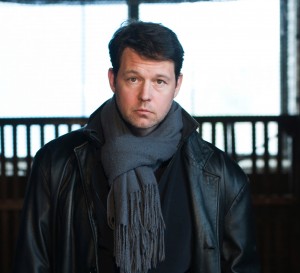
What is the biggest issue facing sports today? Is it doping? Head injuries? If you ask investigative sports journalist and recent Osgoode guest Declan Hill, he would tell you that there is no bigger issue in sport than corruption and match-fixing. Match-fixing refers to the practice by which sports are played to a pre-determined result in order to earn a profit by betting on the match. One of the world’s foremost experts on match-fixing and corruption in international sports, Hill spoke at Osgoode on November 20, 2013, courtesy of the Entertainment and Sports Law Association.
According to Hill, corruption and match-fixing is as old as sport itself, dating back thousands of years to the ancient Olympics in Greece. However, a new form of corruption, fueled by organized crime and gambling rings worth tens of billions of dollars, threatens to destroy sports on a worldwide basis. Hill infiltrated such criminal organizations to give the world a glimpse into the shockingly corrupt world of international soccer (the subject of his book: The Fix: Soccer and Organized Crime).
When most North Americans think of sports gambling, they think of Las Vegas. However, Hill informed his audience that Vegas accounts for less than 1% of the sports gambling market. While the precise size is obviously difficult to determine, Hill estimates that 60-70% of the market is dominated by illegal Asian gambling outfits. Along with attracting gamblers with thinner margins, these operations are run by criminals who are willing to bribe and intimidate players, coaches, referees and other officials to influence the result of a match. Hill explained how this match-fixing practice has thoroughly corrupted professional sports in Asia, from sumo wrestling in Japan to baseball in Taiwan. Hill told his audience of the surprising tale of the president of the Football Association of Indonesia who was sentenced to two years in prison as a result of his corrupt practices – and maintained his position throughout his prison term.
As Hill explained, however, the problem is not constrained to Asia. Having thoroughly corrupted sports in their own countries, Asian match-fixers have been forced to look elsewhere for “honest bets” in order to attract and retain gamblers. European soccer has been hit hard by match-fixing allegations in recent years, with few countries spared from the controversy. Hill believes that the practice is not constrained to soccer, suggesting that ATP tennis may have been corrupted as well.
Most Canadians would like to see match-fixing as a strictly Asian and European problem. However, North American sports are far from immune. The Canadian Soccer League (CSL), a semi-professional soccer league based in Southern Ontario has been plagued by match-fixing controversies in recent years, leading the Canadian Soccer Association to withdraw its support from the league in January. The CSL has been dropped from many gambling websites due to the controversy.
Despite this, Hill believes there is an “absence of leadership and accountability” regarding match-fixing in Canada. Canadian authorities have been willing to turn a blind eye to an issue that is generally regarded as a foreign problem, largely constrained to soccer – a sport which is not as close to the hearts of Canadians as sports like hockey and football.
However, the match-fixers’ appetite for corruption cannot be satiated within the bounds of a particular sport or geography. It is only a matter of time, Hill warns, before the match-fixers begin targeting the NCAA and the “big 4” North American professional sports of baseball, football, basketball and hockey. The NCAA has been hit with corruption controversies in the past, and its model – elite athletes competing in high-stakes games for no compensation – is ripe for exploitation by the fixers. The big 4 are somewhat insulated by the exorbitant salaries that athletes receive in each of the leagues (for obvious reasons, match fixing is best-suited to situations where athletes receive little or no compensation). However, Hill believes that match-fixing has occurred before in the National Hockey League.
How can the world of sports protect itself from this pervasive threat? Hill believes that regulation of sports betting, rather than its prohibition, is the answer. However, he believes that international cooperation is required to combat a truly international opponent. An international anti-corruption agency aimed at preventing match-fixing at all levels of sports is the most viable solution. If the problem of match-fixing is as bad as Hill suggests then it certainly has the potential to damage, or even destroy, sports on a worldwide basis. It is in the interests of all fans and athletes that governments and international organizations heed his advice and take a strong stand against corruption while they still can.
